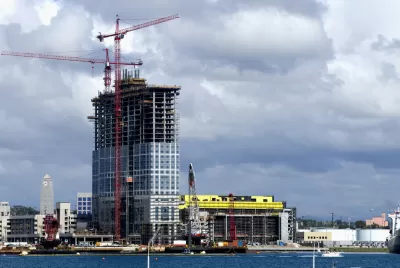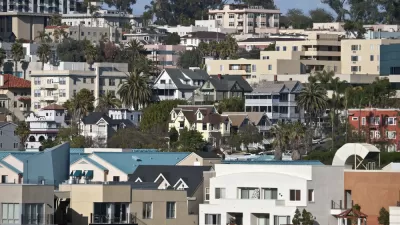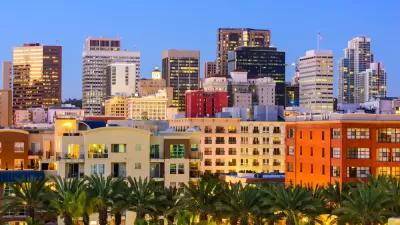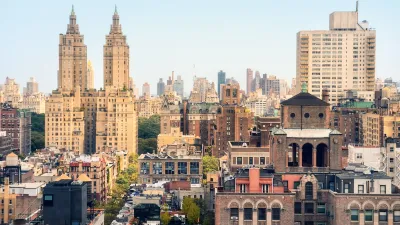Until now, mixed-use projects have required a lengthy discretionary approval process in San Diego. That could change with a zoning change given preliminary approval by the City Council this week.

"The San Diego City Council Monday tentatively approved an amendment to the city’s municipal code to add a sixth development zone category aimed at spurring high-density housing developments near public transit and employment areas," reports Ken Stone.
The zoning code change adds a sixth category to the city's zoning code: "mixed-use." The new code designation joins open space, agricultural, residential, commercial, and industrial in the municipal code.
"Mixed-use zoning will be available for developments that are primarily residential or employment-based. Secondary uses for mixed-use developments include residential space, employment space, offices and retail units," according to Stone. "Mixed-use developments that face the public right-of-way or a private drive or plaza will also be required to include building-front additions like bay windows, balconies and awnings."
Stone quotes Councilmember Vivian Moreno in the article, who backs the potential of the zoning change to make it easier for developers to create walkable communities.
"For developers seeking to rezone their current projects into the mixed-use category, city staff said the wait time to process a rezone is roughly 12-18 months, based in part on the speed with which developers return required paperwork to the city," according to Stone. Meanwhile numerous developers have sought this kind of development in recent years, only to encounter this long discretionary approval process.
FULL STORY: High-Density Housing Near Public Transit Is Aim of San Diego Code Change

Alabama: Trump Terminates Settlements for Black Communities Harmed By Raw Sewage
Trump deemed the landmark civil rights agreement “illegal DEI and environmental justice policy.”

Planetizen Federal Action Tracker
A weekly monitor of how Trump’s orders and actions are impacting planners and planning in America.

Why Should We Subsidize Public Transportation?
Many public transit agencies face financial stress due to rising costs, declining fare revenue, and declining subsidies. Transit advocates must provide a strong business case for increasing public transit funding.

Understanding Road Diets
An explainer from Momentum highlights the advantages of reducing vehicle lanes in favor of more bike, transit, and pedestrian infrastructure.

New California Law Regulates Warehouse Pollution
A new law tightens building and emissions regulations for large distribution warehouses to mitigate air pollution and traffic in surrounding communities.

Phoenix Announces Opening Date for Light Rail Extension
The South Central extension will connect South Phoenix to downtown and other major hubs starting on June 7.
Urban Design for Planners 1: Software Tools
This six-course series explores essential urban design concepts using open source software and equips planners with the tools they need to participate fully in the urban design process.
Planning for Universal Design
Learn the tools for implementing Universal Design in planning regulations.
Caltrans
Smith Gee Studio
Institute for Housing and Urban Development Studies (IHS)
City of Grandview
Harvard GSD Executive Education
Toledo-Lucas County Plan Commissions
Salt Lake City
NYU Wagner Graduate School of Public Service





























